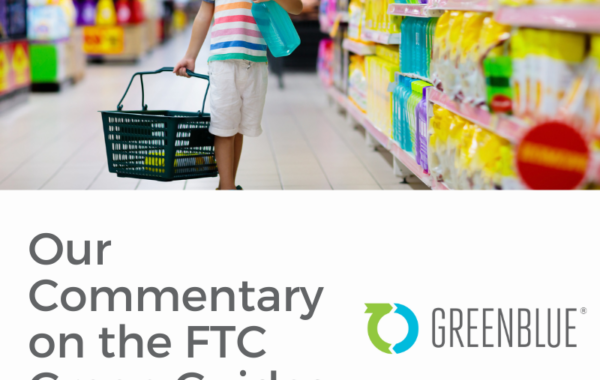March 25, 2021
Taking place during the SPC Winter Webinar Series, the Big Interview session with Alastair Child candidly explored how Mars Wrigley – maker of beloved brands like M&M’s®, SNICKERS®, Orbit®, Altoids®, Starburst®, and Skittles® – approaches sustainability as a multinational company.

The Five Key Takeaways:
- Big Business means Big Impacts means Big Responsibility
Mars is ‘big’. For context, their carbon footprint is equivalent to that of a small country, and the land they use to source raw materials is approximately the size of Belgium. That means they have a big impact. And, according to Mars, any incremental changes they make won’t be enough to challenge the status quo, or “reverse the damaging effects of climate change, water scarcity, poverty, and other pressing issues”. To drive positive change and support the United Nations’ Sustainable Development Goals, Mars invested $1 billion in their Sustainability in a Generation Plan which focuses on three areas for purposeful growth (healthy planet, thriving people, and nourishing wellbeing).

Alistar Child leads the sustainability efforts for Mars Incorporated’s confectionery business and is responsible for delivering on the segment’s commitments. He says, “Purpose without performance is not possible, and performance without purpose is meaningless.” The sentiment behind this brain twister rings true. Corporations with the greatest influence have the greatest responsibility – to transform the way they do business – to avoid future risks – to protect people and the planet – to create positive impacts.
- Coalitions are a powerful mechanism for change
Collaboration and knowledge sharing are essential to improving sustainability outcomes on a global scale. Coalitions (like the SPC, the Consumer Goods Forum, and others) bring together key supply chain perspectives that can help to inform and challenge current thinking on sustainability topics. Without these groups, individual actions could simply move the problem elsewhere. Alistair called this phenomenon an ‘accounting problem’, where only the math, not the net result, change.
- Set the system up for success – make packaging less complex
Industry coordinated action could help to create better outcomes for packaging. More diverse formats entering the market could mean less “core packaging” and more collection, sortation, reprocessing, and end-market unknowns (see The How2Recycle Guide to Future Recyclability for more information). Alistair sees packaging design coordination as one way the industry can help improve recyclability outcomes.
- Commitment is important, but it’s all about delivery
The notion that “companies are often celebrated as much for their acknowledgment or initial commitment to an issue, as they are for their delivery” is one that we should not so easily forget. Alistair reminded us that even if there is no clear solution, communicating the “why”, the challenges, and the progress goes a long way with building trust with consumers.
- Real, measurable change requires transformative thinking
The goal of sustainability is to cultivate and maintain conditions under which humans and the environment can co-exist(1). Naturally, this requires a fundamental balance of people, planet, and profit – where development meets the needs of the present without compromising the needs of the future(2). In that way, sustainability often forces businesses to reckon with complex and interconnected issues that they may not readily know how to solve.
 In order to challenge the status quo, Alistair believes business must embrace transformative change. Mars’ 2019 Palm Positive Plan, primarily aimed at zero-deforestation, is an excellent case study for this type of thinking. Mars was able to drastically reduce its number of palm oil suppliers (transitioning from sourcing from 1500 mills to fewer than 100). The idea was to create a smaller, more transparent supply chain that allowed them to monitor and respond to deforestation and social risks more quickly and effectively.
In order to challenge the status quo, Alistair believes business must embrace transformative change. Mars’ 2019 Palm Positive Plan, primarily aimed at zero-deforestation, is an excellent case study for this type of thinking. Mars was able to drastically reduce its number of palm oil suppliers (transitioning from sourcing from 1500 mills to fewer than 100). The idea was to create a smaller, more transparent supply chain that allowed them to monitor and respond to deforestation and social risks more quickly and effectively.
Sometimes sustainability can feel difficult like it’s at odds with business profitability and growth. This SPC session pushed us to look past those initial obstacles. Finding sustainable solutions may be challenging, and in some cases require intensive transformational changes. But creating a more sustainable business – and world – has a lot of perks too. Sustainability can help companies manage risks, drive innovation, improve competitive advantage, cut costs, build customer loyalty, and attract employees(3,4). Plus, such work can further the larger global effort to create a more healthy, balanced, and equitable planet.
To discover more upcoming events, visit https://dashboard.sustainablepackaging.org/events
(1) Learn About Sustainability. Environmental Protection Agency (EPA). Web.
(2) Sustainable Development. International Institute for Sustainable Development (IISD). Web.
(3) Tensie Whelan and Carly Fink. The Comprehensive Business Case for Sustainability. Harvard Business Review. 2016.
(4) Andrew Winston. Explaining the Business Case for Sustainability Again … and Again … and Again. MIT Sloan Management Review. 2018.





